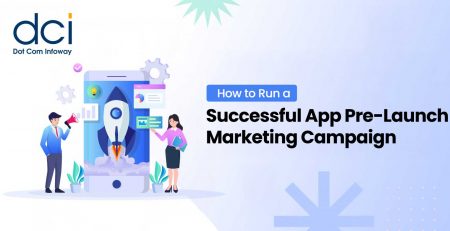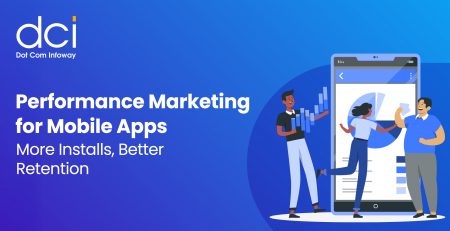Mobile App Marketing in 2025: Top Trends, Strategies, and Growth Tactics
Mobile app marketing in 2025 is set to redefine how businesses and developers connect with audiences. With the app economy projected to exceed $935 billion in revenue by the end of the year, mastering marketing strategies is not just an option—it’s a necessity. As technology advances and competition grows fiercer, businesses must innovate, adapt, and align with the latest trends to succeed. This guide explores everything you need to know about the top trends, proven strategies, and growth tactics for mobile app marketing in 2025.

The Significance of Mobile App Marketing in 2025
Mobile apps are a staple in modern life, with billions of users relying on them for communication, entertainment, productivity, shopping, and much more. The rapid adoption of mobile-first behaviors has shifted marketing priorities, making mobile app marketing a critical component of business strategies.
In 2025, app store saturation is a key challenge. With millions of apps vying for attention, effective marketing ensures that your app gets noticed, downloaded, and used consistently. It’s not just about attracting users but also retaining them in a landscape where attention spans are fleeting. Businesses need to deliver value, solve user pain points, and provide seamless experiences to stay ahead.
Trends Shaping Mobile App Marketing in 2025
Artificial Intelligence and Personalization
AI has become a driving force in marketing innovation. In 2025, AI is enabling apps to deliver hyper-personalized experiences based on user data. For instance, apps can now analyze browsing history, purchase patterns, and engagement metrics to offer tailored recommendations, push notifications, and promotions.
Apps like Spotify and Netflix are already leveraging AI to create personalized playlists and content suggestions. Such strategies not only enhance user satisfaction but also improve retention rates. The ability to anticipate user needs and offer solutions before they ask has become a game-changer in app marketing.
Voice Search Optimization
Voice search is no longer a futuristic concept—it’s a reality shaping app marketing. As more users rely on smart assistants like Alexa, Siri, and Google Assistant, optimizing apps for voice commands has become crucial. Incorporating natural language processing (NLP) enables apps to understand and respond to voice queries, ensuring they remain accessible and user-friendly.
For example, a food delivery app optimized for voice commands can allow users to place orders hands-free. This convenience fosters loyalty and drives user engagement, particularly in markets where multitasking is common.
5G and Enhanced Connectivity
The global rollout of 5G networks is transforming the mobile app experience. With ultra-fast internet speeds and minimal latency, 5G allows apps to deliver high-quality streaming, seamless gaming, and immersive AR/VR experiences.
For marketers, 5G unlocks the potential for richer ad formats, such as interactive videos and live-streamed product launches. These innovations help brands create memorable experiences that keep users engaged.
Subscription-Based Models
Freemium models have been popular for years, but 2025 sees a stronger shift toward subscription-based revenue models. Users now prefer predictable costs for premium features rather than frequent in-app purchases. For example, productivity apps like Evernote and Notion offer tiered subscription plans, catering to casual users and power users alike.
This model benefits developers with steady revenue streams while allowing users to access premium features without constant disruptions.
Sustainability and Ethical Practices
As consumers become more socially and environmentally conscious, sustainability has emerged as a key factor in app marketing. Businesses that prioritize eco-friendly practices—such as reducing data usage, promoting carbon offsets, or supporting social causes—resonate better with their audiences.
For example, a fitness app might integrate features that encourage users to contribute to reforestation efforts through their activity milestones. By aligning marketing efforts with ethical values, businesses can create meaningful connections with their users.

Struggling to Scale Your Mobile App’s Growth in 2025?
Discover cutting-edge strategies, AI-driven solutions, and the latest mobile app marketing trends to outperform competitors and drive growth—only with Dot Com Infoway
Strategies for Successful App Marketing
App Store Optimization (ASO)
ASO is a cornerstone of app marketing success. With millions of apps competing for visibility, ensuring that your app ranks high on search results is essential. Key ASO tactics include optimizing titles, descriptions, and metadata with relevant keywords. Visual elements such as app icons, screenshots, and demo videos also play a critical role in driving downloads.
In 2025, user-generated content like reviews and ratings has become even more influential in app store rankings. Encouraging satisfied users to leave positive feedback can significantly boost your app’s discoverability and credibility.
Leveraging Influencer Marketing
Influencer marketing has proven its effectiveness in app promotion, and its relevance continues to grow in 2025. Collaborating with influencers—especially micro-influencers—allows marketers to tap into niche audiences with high engagement rates.
For instance, a fitness app might partner with fitness influencers to showcase workout features or meal planning tools. Influencers bring authenticity to campaigns, making their followers more likely to trust and try the app.
Data-Driven Decision Making
The ability to harness and analyze user data is vital for effective app marketing. Advanced analytics tools provide insights into user behavior, including session durations, preferred features, and drop-off points.
Marketers can use this data to refine strategies, such as retargeting users who abandoned the onboarding process or optimizing features that drive the most engagement. By continuously iterating based on data, apps can improve user retention and lifetime value.
Incorporating Gamification
Gamification has become a popular strategy to drive user engagement. Adding game-like elements—such as rewards, challenges, and leaderboards—makes app interactions more enjoyable. For example, a language-learning app might offer daily streak rewards or unlockable achievements for completing lessons. Gamification not only motivates users to stay active but also fosters a sense of accomplishment, increasing retention.
Cross-Promotion Strategies
Cross-promotion involves promoting your app within other apps or platforms to expand your reach. For instance, if you own multiple apps, you can encourage users to try your other offerings through in-app ads or notifications. Similarly, partnerships with complementary brands can help you tap into their user base without spending heavily on ad campaigns.
Growth Tactics for Mobile Apps in 2025
Localized Marketing
Localization is about more than translating your app—it’s about adapting your content, visuals, and marketing strategies to resonate with local audiences. This might involve using culturally relevant imagery, adapting features to local preferences, or offering region-specific promotions.
Localized apps tend to perform better in international markets as they feel more intuitive and relatable to users. For example, an e-commerce app that includes local currency and language options can significantly boost user adoption.
Retargeting Campaigns
A large percentage of users abandon apps within the first week of download. Retargeting campaigns help bring these users back by reminding them of the app’s value. Personalized incentives, such as discounts or updates about new features, can rekindle interest and encourage users to re-engage.
Community Building
Building a community around your app fosters loyalty and trust. Social media platforms, forums, and user-generated content campaigns enable users to share their experiences and connect with like-minded individuals.
For example, a wellness app might create a Facebook group where users can share their fitness journeys, tips, and progress. Such communities create a sense of belonging that keeps users invested in the app.
AR/VR Integration
AR/VR technology is a game-changer in app marketing. Retail apps can use AR to let users virtually try on clothes or place furniture in their homes. Gaming apps can create immersive worlds that captivate users for hours. These features not only differentiate apps but also provide a competitive edge in attracting tech-savvy users.
Conclusion
As mobile app marketing in 2025 advances, success depends on innovation, user-centric approaches, and the ability to adapt quickly. The app ecosystem is more competitive than ever, but businesses that stay ahead of trends and implement effective strategies will thrive. By embracing AI, optimizing for voice search, leveraging 5G, and adopting sustainable practices, marketers can ensure their apps remain relevant, engaging, and profitable.















